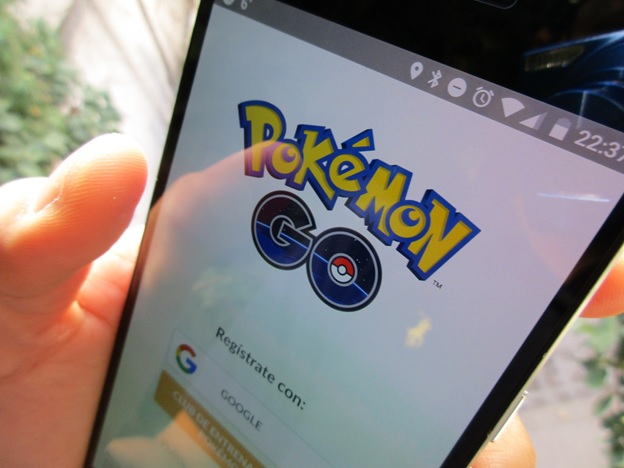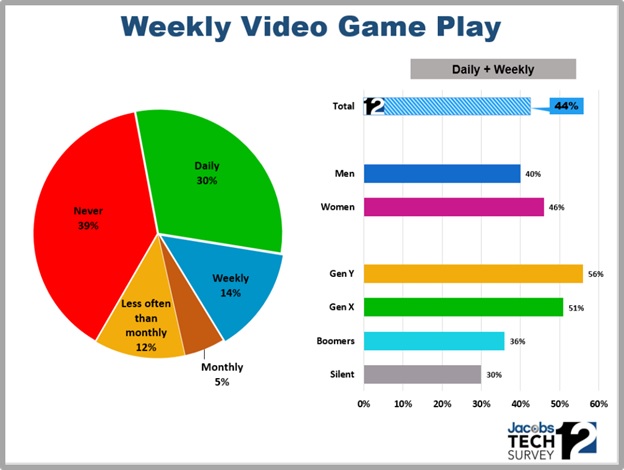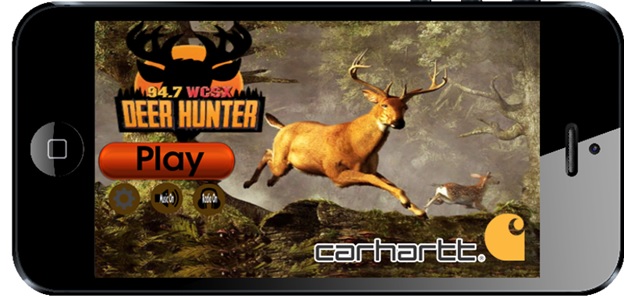 As we continue to review quarterly results from broadcasters big and small, we see some companies enjoying incremental growth, while others continue to struggle in the revenue department. But all the data suggest that digital is radio’s real area of growth, but that said, what does that really mean?
As we continue to review quarterly results from broadcasters big and small, we see some companies enjoying incremental growth, while others continue to struggle in the revenue department. But all the data suggest that digital is radio’s real area of growth, but that said, what does that really mean?
Digital is many things – streams, podcasts, video, social media – and oftentimes, broadcasters aren’t sure where to invest both their financial and their human resources.
One of the steadiest and easiest to understand slices of the digital pie is gaming. It’s been around since Pong and Pac-Man, but the mobile revolution has made gaming portable and thus, even more ubiquitous.
There’s an opportunity for strong radio stations to cash in on the video craze, and jācapps COO Bob Kernen has lots of good ideas. Here’s his guest post on radio and gaming. – FJ

If the debut of Pokémon GO last month suggests anything, it’s that the massive popularity of games is a huge opportunity for media and brands. This game proved to be so huge that Apple announced its App Store just celebrated its best month ever. In the first 30 days since its release, Pokémon GO reportedly has generated more than $200 million in revenue.
Some think this is nothing new. Consumers have been playing games on their smartphones and tablets since their invention. But this Pokémon GO has blown through the digital ceiling, totally eclipsing the performance of its predecessors.
And this game has transcended its target audience. Unless you’ve been trapped in a mine, in a coma or in a politically induced media blackout, you’ve no doubt encountered the Pokémon GO phenomenon. It’s a big news story for umpteen reasons, as it’s captured the zeitgeist of the moment. But what does it all mean, and can radio brands capitalize on the mobile gaming phenomenon?
First, a little background: The augmented reality game was released on July 6th, has been downloaded an estimated 75 million times and initially put over $11 billion onto Nintendo’s market cap. Weeks later, people all over the world are walking around staring at the world through their smartphone camera looking for Pokémons and Poke-stops. They’re talking to each other about where they’re most likely to find Pokémons, and fretting about “leveling up.”
What’s new about GO is that it’s out in the world. It was launched in the summer for a reason, as being out in the local environment is absolutely critical to the game play. As a result, it incorporates local places (for better and worse in the case of the Holocaust Museum) and creates a sense of pervasiveness, that is, “the game is all around me.” And that is a perfect fit for our mobile world.
What all this demonstrates is the tremendous power of games in our never bored society. People of nearly every demographic play some sort of game.
In Techsurvey12, we asked about game play, and found out that more than four in ten indulge at least weekly.

Some stereotype “gamers” as pasty-skinned teenage boys playing Halo in their parents’ basements, but the typical gamer today is a middle aged woman who likes the so-called “casual games” typically found on smartphones; games like Candy Crush, Bejeweled, or Solitaire. When you factor in these game players, the demographics simply explode.
TS12 also shows that fans of formats that include Rhythmic CHR, Alternative, CHR, Rock, and Country all profile higher than the average for weekly game play. That’s a pretty diverse group of radio listeners.
Pokémon GO is only the latest mobile gaming phenom. Its predecessors include the aforementioned Candy Crush as well as Angry Birds, Farmville, and others that have managed to capture mass imaginations, while keeping us entertained in the doctor’s office waiting room.
A common element of these games, however, is they are highly social and very addictive. Something in the game play makes it hard for people to stop once they start. They provide challenge and reward in the right proportion to keep players coming back at every free moment. In a world where radio is measured by time spent listening, games have a habit-forming quality that is enviable.
But rather than just shaking your head at this phenomenon, games could be a component of your mobile strategy. You may not create a viral game like Pokémon GO, but if you factor in the sources that entertain your audience, you might “catch” a little of that magic.
A couple years back, one of our radio clients, WCSX/Detroit, asked us to create a game for Michigan’s massively popular deer hunting season. Our team developed “Deer Hunter,” and the result was an instant programming and revenue success. The station aggressively promoted the game, resulting in over 55,000 downloads in just five weeks, generating over one million ad impressions for their advertiser, Carhartt.
By the way, that’s another edge for radio. Developers will often share their frustration over creating a great game, but not having the ability to get the word out about it given there are now 2 million apps in the store. As WCSX proved, downloads come easy when you use your “cume megaphone.”

While some mistakenly think of game play as something for younger consumers, note that in the TS12 chart, more than a third of Baby Boomers also indulge weekly or more often. So games are not just for rockers or pop music lovers. In fact, a news or sports trivia game could connect with audiences of these spoken word formats, including even public radio stations. (Remember: Wait Wait and Ask Me Another are games.)
Gaming is particularly advertiser-friendly, and there are many ways to incorporate brands into games that create high value exposure. The key is to leverage your station’s qualities and its local or regional flavor to make the game unique, special, and most of all, fun!
Above all, Pokémon GO is a reminder that a great game is habit-forming, providing value for brands and the advertisers that support them. When you see people walking around searching for Pikachu, and you think it’s a phenomenon happening far away from radio, think again.
To learn more about how mobile can drive your business, or to discuss your mobile strategy, contact Bob at 248-353-9030 or email [email protected].
- 7 Lessons We’ve Learned From Developing 1,300 Mobile Apps - February 5, 2020
- Mobile Christmas & Appy Chanukah Wishes - December 13, 2016
- Apple CarPlay and Android Auto In The Wild - August 31, 2016




Leave a Reply